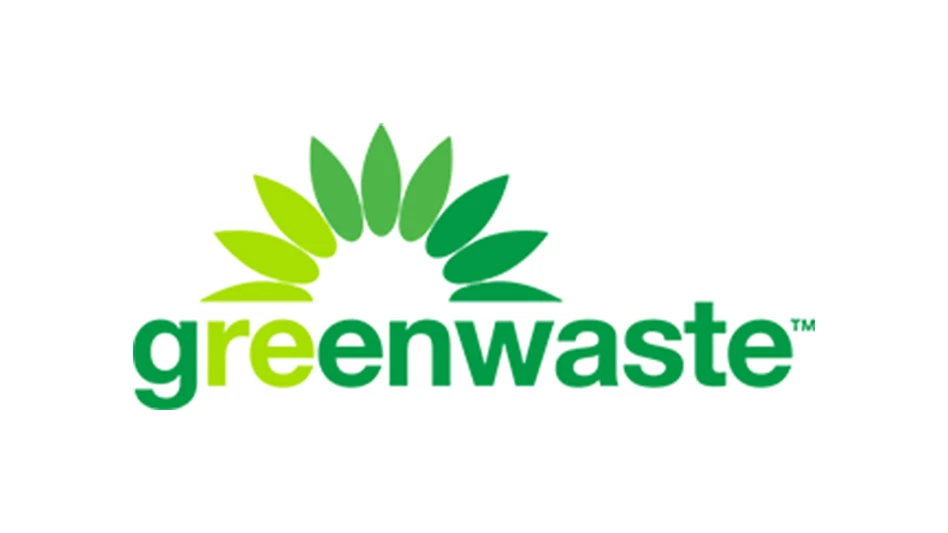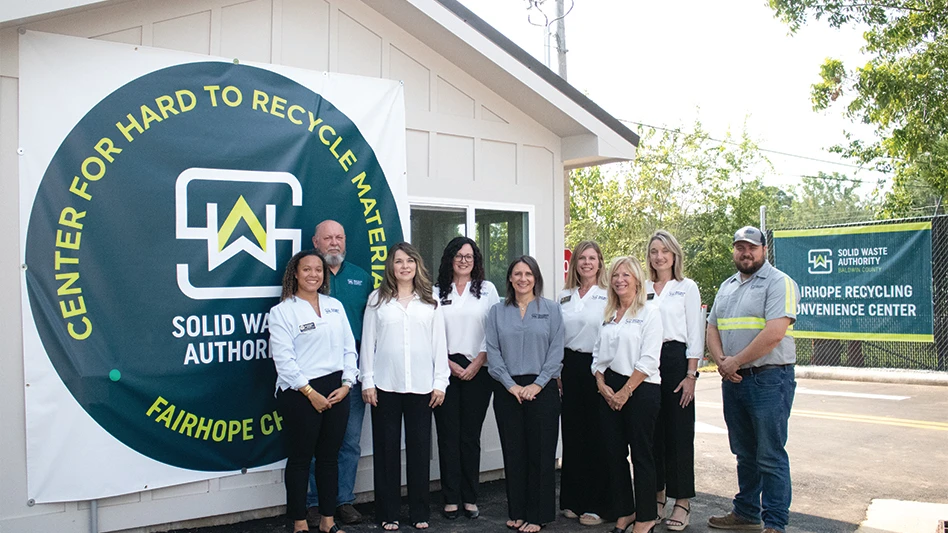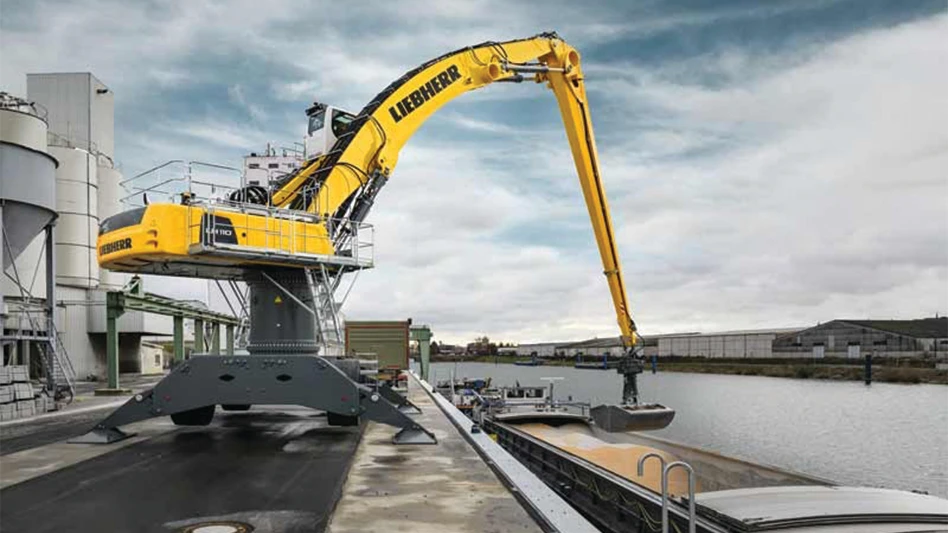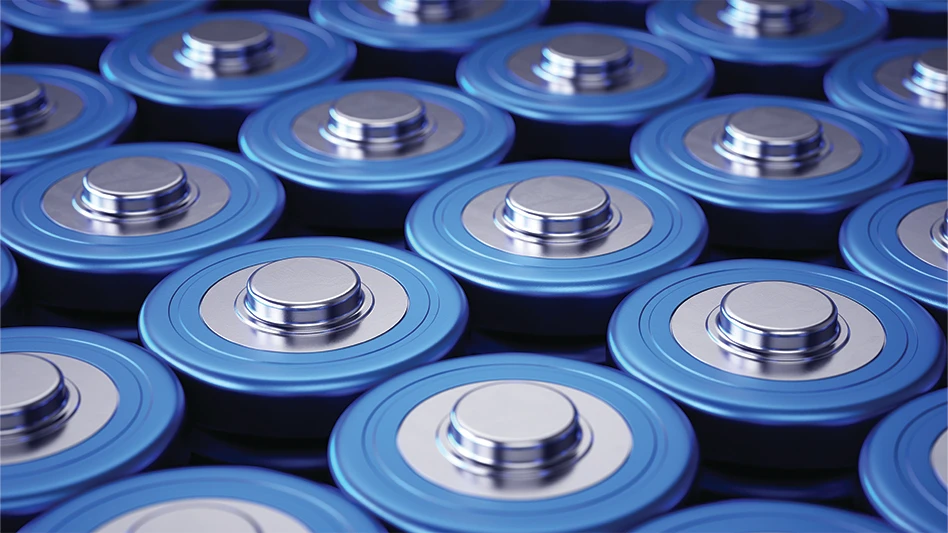
Many successful recycling and waste management firms point to years (and often decades) of steady growth and careful, cautious steps as the keys to their success. The approach taken by Chicago-area independent hauler and processor Lakeshore Recycling Systems (LRS) has been different, as demonstrated by the company’s commingling of technology and innovative thinking in its growing service area.
This nontraditional approach has served LRS well, as has its commitment to customer satisfaction and environmental preservation, making it one of the fastest-growing companies in the environmental services field in the Midwest.
Investing in the in-between
Alan Handley, CEO of LRS, credits the company’s rapid growth and success to not following the tried-and-true path but rather to delivering innovative and environmentally responsible waste and recycling solutions.
“I think the greatest thing about LRS is we are innovators and take existing technology and not only utilize it in our business but enhance it,” Handley says. “This gives us the ability to differentiate ourselves from a market that is homogeneous.”
At the material recovery facility (MRF) and transfer station level of the waste and recycling business, Handley says LRS is the dominant player in the Chicago area, especially on the city’s south side. “It is just not something a lot of our competitors have as part of their business model,” he says. “They won’t do line sorting and divert recyclables from the waste stream. Full-service MRFs are extremely rare in Chicago.”
Handley adds, “Many of the bigger waste haulers just transload the material and take it to their landfills.”
This unsustainable philosophy to waste management, he says, is one reason why Chicago continues to lag behind other major cities when it comes to recycling.
Handley says LRS takes the communities it serves into account when developing services, “tailoring ourselves to the individual needs of the community.” He adds, “Our competitors are not set up with the strategic vision to have diversion or recycling as their main priority. They are concentrated on making the majority of their profits on their landfills. Any assets they deploy between the collection event and their landfill are not perceived to be efficient uses of their capital. Simply put, investing money in the intermediate steps [of processing recyclables] diverts funds away from investments needed to maintain and grow either their landfills or collection efforts.”
On the flip side, Handley says, is LRS. “At the end of the day, our biggest emphasis centers on investing in ways to increase recycling and diverting more material from our inbound waste stream.”
These intermediate steps are where LRS is finding its greatest success. And its aggressive approach to extracting the maximum volume of recyclables from the material streams it handles has been driven partly by the company’s lack of a landfill asset. “We don’t own or operate landfills,” Handley says. Because of that, the company’s investments are made “between the collection point and the landfills, which extends to our technology.”
Because LRS handles many tons of municipally collected recyclables from the Chicago area, the company is confronted with quality challenges on a regular basis. Therefore, LRS says it makes recycling education a priority. Handley says, “When we assume a contract, we put graphics on the recycling containers to better illustrate what is or is not considered [recyclable].”
Despite using innovative technology on its single-stream sorting line and at its other MRFs, LRS employees are vigilant about spotting contamination in incoming loads.
“For example, plastic shopping bags are immediately grabbed by our line workers when they come across them in our single-stream line presort. These items can potentially jam a machine, and so it is essential to have watchful employees on the line,” Handley says.
“We spend a lot of time on the presort and on the floor before [material] ever gets to the line,” he adds.
Embracing technology
Handley talks eagerly about the company’s introduction of RFID (radio-frequency identification) tags earlier this year in the Chicago suburb of Highland Park. The RFID tags are used to track collection metrics and allow residents to take advantage of pay-as-you-throw (PAYT) billing for their garbage services—a first for Illinois and only the second PAYT deployment in the United States, the company says.
Information collected via the RFID tags van be viewed on a web-based platform—an additional example of innovation the company is employing on the collection side of the business.

LRS’ contract with Highland Park started Oct. 1 and runs for five years. The RFID tags replace a one-time-use sticker that was placed on garbage cans for the earlier PAYT program. Residents will be charged a tipping fee each time the RFID tag is read when LRS empties the garbage cart.
LRS says it also has introduced an improved communication interface between dispatch and fleet drivers, equipping each driver with a tablet computer to track pickups, photograph containers and maintain an updated route schedule. This change will help LRS reduce its operating costs, the company says.
Because of these steps and others, LRS has been able to grow its annual revenue from $58 million when it was first established in late 2012 to a projected revenue of $130 million in 2016.
Increasing scale and capabilities
The introduction of innovative programs, such as Highland Park’s PAYT program using RFID tags, has helped LRS stand out from its competitors in the area. However, the company’s growth also can be attributed in part to several acquisitions it has made in the past three years. This should not be a great surprise, as a merger led to the formation of LRS in the first place.
Although LRS has been in business since late 2012, its roots extend to 1999 with the founding of Recycling Systems Inc. (RSI), Forest Park, Illinois, which merged with Lakeshore Waste Services (LWS), founded in 2001 in Morton Grove, Illinois, to form the company.
The Golf family formed RSI in 1999 to provide roll-off services in the Chicago area. As RSI grew, it invested in a MRF.
Meanwhile, LWS, a Chicagoland hauler that specialized in waste and recycling services for commercial and residential customers, was rapidly expanding.
In late 2012, the two companies merged, creating a vertically integrated waste and recycling company and renaming it Lakeshore Recycling Systems. The merger brought together principals from both companies: RSI founders, brothers Jerry and Rich Golf, and LWS founder, Joshua Connell.
To complete the executive staff, LRS added Handley as CEO. While the other partners had waste and recycling industry knowledge, Handley’s expertise was on the financial side.
“I have an extensive financial and consultative background across multiple industries,” he says. “This background has allowed me the ability to work seamlessly with our team here at LRS; evaluate the competitive landscape; and develop, evaluate and execute on very aggressive strategic plans,” Handley adds.
With its management team in place, LRS sought acquisition targets. Quickly following the merger that formed the company, LRS acquired Exchange LLC, a Chicago-based construction and demolition (C&D) recycling firm.
But acquisitions made solely for the sake of growth are not part of LRS’ strategy, Handley says. “There are two or three attributes we need to see for it to be a good fit,” he says of the company’s acquisition strategy. “Does it fit into our geographic footprint plan? Secondly, they need to have the right mix of work. As we grow and do more, we really need to have a proper allocation of permanent and temporary work. We do a lot of temporary work on the construction and demolition side. That is fine; we love that work. But we also need to keep growing our permanent residential and commercial portfolio,” he adds. “We are trying to find the right size of company with the right mix of business that is optimal for us in the long term.”
One area of regret Handley expresses is that LRS did not focus initially on acquisition targets that included strong management personnel to add to the LRS family. “Over time, we realized that we needed to find teams of people who want to stay with us postacquisition,” he says. “We used to be agnostic about whether the sellers or management teams wanted to stay or leave following the acquisition. Today, talent development and acquisition is an enormous focus for LRS, and we are aggressively looking for acquisitions where a strong management team would like to stay and grow with us.”
In June 2014, LRS acquired Forest View, Illinois-based Heartland Recycling, which operated two MRFs in the Chicago area.
Following this purchase, the company invested $8.5 million, including a $1.5 million loan from the Closed Loop Fund, to build a 40,000-square-foot Machinex single-stream recycling system that allows LRS to process more than 110,000 tons of residential and commercial single-stream recyclables. The Machinex system sorts and separates more than 20 tons of material per hour, LRS says.
By the start of 2016, LRS estimates that it controlled about 32 percent of Chicagoland’s outbound waste stream.
Not content to rest on its successes, LRS continues to grow through acquisitions, including the purchase of Northbrook, Illinois-based C&D Recycling, the company’s sixth facility, which specializes in sorting C&D material.
LRS says its revenue has grown by more than 75 percent as a result of these acquisitions and its improvements to internal operations. The company says it controls and processes more than 2.2 million tons of material per year—more than any other privately held company in Illinois.
It operates six MRFs and a thriving C&D recycling business that has helped fill out the company’s temporary business. LRS has been awarded six municipal collection and processing contracts to date; a three-year recycling and waste contract with the City Colleges of Chicago, the largest community college system in Illinois and one of the largest in the nation; and the citywide contract to handle waste and recycling for the Chicago Public Schools, which comprises more than 650 buildings.
The success LRS has enjoyed has given it the resources to seek out other opportunities. Handley says LRS is looking at additional acquisitions, which likely would include other regional players.
Over the next five years, Handley says he feels LRS will be the largest independent waste and recycling company in the region. “We are on a good trajectory for the future,” he says. “I expect us to be somewhere north of $250 million in sales.”
Handley continues, “We have tremendous employees that possess a passion to do right by the environment and a management team that is solely focused on recycling and diversion versus owning a landfill. Our team made a promise during the merger that LRS was going to be a disruptive force in the Illinois waste and recycling market, and I strongly believe that we have done an excellent job delivering on just that promise.”

Explore the October 2016 Issue
Check out more from this issue and find your next story to read.
Latest from Recycling Today
- Dow, Mura Technology cancel chemical recycling plant in Germany
- Brightmark, Lewis Salvage partnership processes 1M pounds of medical plastics
- US paper recycling rate, exports down in '24
- Century Aluminum to restart idled production at South Carolina smelter
- Teaching kids the value of recycling
- ELV Select Equipment, Reworld aid NYPD in secure firearm disposal
- Some observers fear plastics treaty talks veering off course
- Advanced Polymer Recycling acquires TKO Polymers





